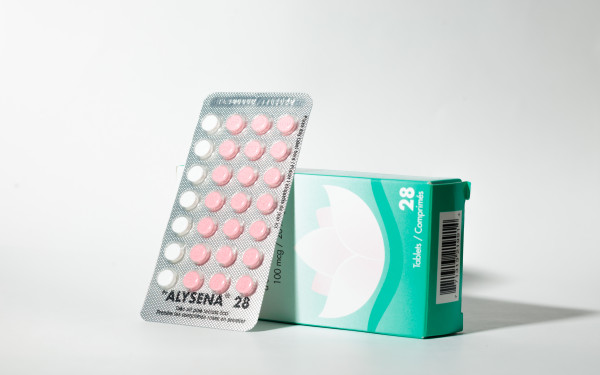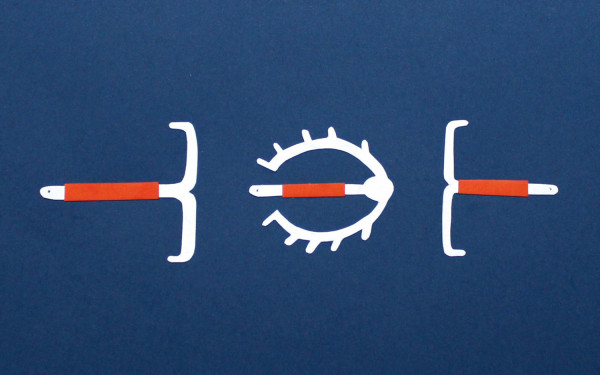IUDs and You
Following last week’s column, this week I’ll be providing an overview of intrauterine devices.
IUDs are a birth control method that consists of a T-shaped device with two threads hanging from the bottom. They are inserted into the uterus while the strings pass through the cervical opening to remain in the vagina for easy verification and removal.
IUDs are popular due to their effectiveness rate of over 99 per cent and because, unlike methods such as the pill, patch or ring, they require no user action once inserted.
Currently, the two types of IUDs in use are hormonal and copper-based. Both have been on the market for over 20 years, are easy to use and are completely reversible. However, each has different benefits, so each is recommended to women for different reasons.
The hormonal IUD works by releasing a low dose of a progestin hormone called levonorgestrel in the uterus. Unlike the pill, which releases hormones into the bloodstream, IUD hormones are released and remain in the uterus. For this reason, women who are sensitive to hormones in the pill generally experience less hormonal side effects when using the IUD.
The hormones in IUDs work in two ways to prevent pregnancy: they thicken the cervical mucus, which prevents sperm from entering the uterus, and they prevent the build up of the uterine lining.
Normally, the uterine lining thickens to prepare for the implantation of a fertilized egg, but the thinner lining makes it difficult for a fertilized egg to attach to the uterine wall. In addition, the physical presence of an IUD affects the movement of sperm, making it more difficult for them to reach the egg for fertilization.
Hormonal IUDs are the more common choice for women with heavier or painful periods. Your period is the result of the monthly shedding of the uterine lining; since hormonal IUDs prevent the full build up of this lining, many women experience lighter and shorter periods, and about one in five stop having a period altogether.
Hormonal IUDs last up to five years without any action on the user’s part, aside from checking on the threads after each period.
The copper IUD works by preventing fertilization. Copper acts as a natural spermicide in the uterus by reacting with your body to increase the level of copper ions and white blood cells, which creates a hostile environment for sperm and inhibits their movement in the uterus.
The copper IUD is non-hormonal, so it’s a good option for women who want to avoid hormones. One of the most common side effects is heavier periods with more cramping, so it’s often recommended for women who don’t already have these menstrual issues, as it may worsen their situation. Like hormonal IUDs, copper IUDs don’t require any action on a user’s part other than checking on the threads after each period, and they can last twice as long as hormonal IUDs.
Serious issues with IUDs are very rare, but include the risk of expulsion from the uterus and perforation of the uterus during insertion. Expulsion can be noticed when checking on the IUD threads monthly, while perforation will usually be immediately noticed by a health professional.
There are a few ways to go about getting an IUD. If you’re under 25, you can visit a CLSC youth clinic to talk to someone and have one inserted. Otherwise, a gynecologist can take care of this for you.
If you don’t have a gynecologist, you can get a referral from your family doctor. Most health professionals will require negative results on pregnancy and STI tests before inserting an IUD, as serious complications can occur if either test is positive.
If you’re hoping to get more information and discuss your options before heading to a clinic, you should call Head and Hands. Their Health Services coordinator, Jos, has weekly call times for sexual health information and is incredibly knowledgeable and easy to talk to. Head and Hands can also handle insertion, or will help you find someone who can.
Finally, it’s important to mention that while IUDs are an effective method of birth control, they offer no protection from STIs. Condoms remain the only effective method for preventing both pregnancy and STIs.
Submit your question anonymously at sex-pancakes.com and check out “Sex & Pancakes” on Facebook. Head and Hands: Ask for Jos at 514-481-0277 Mondays 11 a.m. to 1 p.m., Wednesdays 3 p.m. to 5 p.m. or Thursdays 2 p.m. to 4 p.m. Got a quick health question? Text SextEd at 514-700-0445 for a confidential answer within 24 hours!







